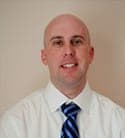BRPT launches a specialty exam for pediatric sleep. It is taken from the test-taker’s home and earns those who pass a digital badge.
By Sree Roy
The Board of Registered Polysomnographic Technologists’ (BRPT) Pediatric Sleep Certificate has been a long time coming.
Registered polysomnographic technologist (RPGST)-credential holders have expressed interest in such a badge for as long as Steve Marquis, MBA, RPSGT, CCSH, has sat on the organization’s board. Though the RPSGT and Certification in Clinical Sleep Health (CCSH) exams ask some pediatric questions, this new exam “really only emphasizes pediatric sleep, so we can dive further,” says Marquis, now BRPT president.

All active RPSGT and CCSH-credential holders who want to prove the depths of their pediatric-specific knowledge can apply to take the timed, at-home, open-book exam. “People can take this on their own time. They don’t have to go to a test center to do this,” Marquis says.
Marquis has spent the bulk of his career in pediatric sleep medicine. A former high school teacher, Marquis has always been interested in youth development. Being a pediatric-focused sleep tech “takes somebody who’s willing to take the time and work with the patient hands-on,” he says. “Every night it’s like playing a game…to get them to buy in to wearing [sleep study equipment].”
[RELATED: Why Evaluating Daytime Sleepiness in Children is Essential]
All of the BRPT committee members who developed the exam have extensive pediatric sleep experience. They undertook a jobs tasks analysis, in which each committee member detailed what a pediatric-focused sleep tech does and does not do in their role. The exam covers everything from pediatric sleep disorders to preparation to study performance to scoring, treatment options, and guidelines.
“Usually the patients in pediatrics either have special needs or disorders that lead into having sleep disorders,” Marquis says. “So you might see Prader-Willi syndrome or Down syndrome more with children than when caring for adults.” These related disorders too are covered on the exam.

Test-takers who pass the exam earn a digital badge—the first time BRPT has offered this technology. Unlike a paper certificate, a single click on the digital badge will reveal a description of the specific knowledge and skills required to earn it. Digital badges can be used in email signatures, personal websites, digital resumes, and on social media sites. “It was intriguing…and something I think credentialing organizations are starting to utilize more of,” Marquis says.
If you’re not yet confident in your pediatric sleep knowledge, stay tuned: AAST is developing a pediatric sleep-focused education program, an optional resource for techs who hope to earn the new BRPT Pediatric Sleep Certificate.
Sree Roy is editor of Sleep Review.





